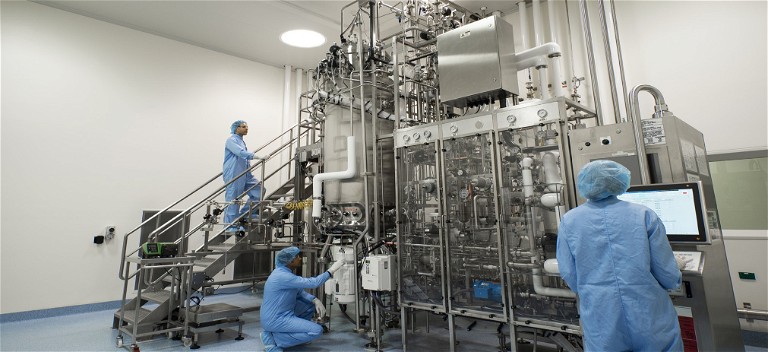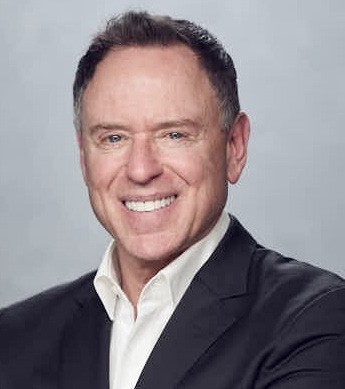Client Satisfaction and CDMOs
The six keys to client satisfaction in biologics CDMO services
This article explores the significant opportunities within the biologics contract development and manufacturing organisation (CDMO) industry to optimise client satisfaction by meeting the critical demands of discerning clients. Six key facets are identified as pivotal to success, while underscoring the fundamental role of a client-centric approach and the importance of building and nurturing strong client relationships.
Mark W Womack at BioCina
There are six key factors that discerning clients of biologics contract development and manufacturing organisations (CDMOs) prioritise when choosing a partner:
• Maintaining inspection-ready compliance and quality at all times
• Consistent on-time and successful client programme delivery
• A client-centric approach
• Having the capacity they need, when they need it
• Offering all or most of the major modalities and service offerings
• Being a pure-play CDMO without its own products to service.
These six key demands form a blueprint for optimising client satisfaction within the biologics CDMO service space.
The most essential element
The utmost priority for clientele of biologics CDMOs is the ability to rely on their service provider to consistently uphold inspection-ready compliance and Good Manufacturing Practice (cGMP) quality standards at all times.
When a CDMO fails to do this, it can be devasting for a client. In the extreme, client programmes are halted for the long-term and must be transferred to another CDMO. At a minimum, client programmes are negatively impacted to a significant degree, with respect to risk profile, timeline, and cost.
Clients of CDMOs need to be able to expect that there will be no compliance issues or concerns regarding required regulatory approvals.
If a CDMO client needs to be concerned about compliance and quality, the outsourcing risk reaches an unacceptable level. Within the biologics CDMO industry, even some of the most well-known brands have had compliance and regulatory issues.
For example, in late 2023, one of the industry giants was cited for problems related to data and production controls, machine validation shortfalls, poor facility maintenance and lackluster quality control.1 It’s crucial for CDMO selection decision-makers to prioritise compliance and quality at the top of their criteria. However important other chief selection factors are, such as timeline, technical prowess and cost-effectiveness, compliance and quality trumps them all.
On-time and in-full
Once a client has agreed with their CDMO on a timeline for their programme, the timeline becomes a mutual commitment between the partners. This mutual commitment necessitates that the client provides and completes prescribed items on schedule and the CDMO is expected to deliver all the defined programme stages on time and in full. CDMO clients must be able to count on a partner who consistently does what they will say they will do.2
Fundamentally, biologics CDMOs are in the business of executing highly complex and scientific projects for their clients. Core to successful project execution is consistently delivering on the project commitments, as per the agreed plan. However, in the biologics CDMO industry, timeline overruns are common. Some of this is unavoidable, due to the complexity of biologics product development and manufacturing and the unpredictability of the science underlying the process. This is why CDMO contracts have important clauses to cover such instances. On the other hand, many CDMO timeline delays are avoidable. There are many things that must be in place within a CDMO’s operations, in order to ensure that avoidable timeline delays rarely occur.

One of the most common causes of timeline delays are CDMOs prioritising bringing in new business over ensuring successful delivery of all of their current client programmes. Other primary causes of timeline delays are lack of sufficient qualified operations staff and lack of synchronicity in scheduling numerous client programmes which utilise common equipment and staff. Drug developers are well advised to choose a CDMO partner with a strong track record of retaining their technical staff, properly staffing their client programmes and ensuring the required facility and equipment availability to meet their client commitments.
Relationships that stand the test of time
Drug sponsors are placing a huge bet when they make their CDMO selection. Typically, they are entrusting a product they have made a huge investment in, to a partner they ultimately have to take a leap of faith with. This is an incredibly difficult process for sponsors, and even in the best cases, there is a fair amount of risk inherent in handing over of their “baby” to the CDMO who will take it further on their behalf. As with any important relationship, building trust is imperative. CDMO clients require a partner who consistently puts themselves in their shoes and demonstrates a commitment to always doing what’s best for their clients.
These qualities are at the heart of a client-centric approach to partner relationships.3 Some of the biggest players in the biologics CDMOs industry are well known for a lack of a client-centric approach to their partner relationships. These CDMOs are considered to be dogmatic in their ways, sometimes conveying that it will be their way or no way. While a certain degree of rigidity in approach can be a strength that leads to disciplined execution, being too inflexible results in a lack of deep understanding of the client’s specific needs and wants, as well as a failure to achieve true collaboration that yields optimal outcomes.
For biologics developers, the ideal partner is one that combines mastery in the execution of development and manufacturing programs, with a commitment to being client-centric in how they engage and treat their clients. Discerning biopharma companies seek highly responsive CDMOs that view open communication and collaboration as integral to forming trusted strategic relationships between partners.
When resources align with your timeline
Biologics developers need to be confident that their partner will have the capacity that they need, when they need it. This is actually an ironic demand which is reminiscent of one of Yogi Berra’s most famous quotes: “Nobody goes there anymore. It's too crowded.” CDMO clients desire a partner with such exemplary expertise and performance that their services are in high demand, yet they want availability for their own needs when they need it. This is a tough balancing act for CDMOs – they face an immense challenge striking an optimal balance between expanding their customer base through positive reputation while simultaneously upholding sufficient capacity to meet existing clients’ production timelines.
The foremost CDMOs skilfully ride this fine line by strategically matching their investments in additional technical capabilities and capacity expansions to projected market growth, which helps manage both present and future client needs proactively, rather than reacting to capacity issues in an ad hoc fashion only after they have already manifested. As such, CDMOs who demonstrate great foresight and excellent capacity management and planning can generally stay ahead of the demands of their current and future clients. Unfortunately, it’s not uncommon for some CDMOs to run out of capacity, due to poor planning, lack of market awareness or an unwillingness to increase their capacity, even when there is demand for it. If such out of capacity scenarios are long term, it's extremely costly for affected clients, both financially and timewise. The most discerning CDMO clients will carefully evaluate a potential partner’s capability and approach to capacity management and planning, including adding capacity in time to meet future client needs, if necessary.4 This is an area that requires mutual transparency, with clients being highly forthcoming about their future demand, and the CDMO being open about its capacity forecast and plan.
Elevating your options
As in many industries, clients of biologics CDMOs often prefer that their CDMO of choice offers a fairly comprehensive suite of services rather than a narrow offering. This includes the range of development and manufacturing modalities offered by a CDMO. Currently, the six most prevalent modality categories in the industry are mammalian, microbial, plasmid DNA, cell therapy, gene therapy and mRNA.
As choosing a CDMO partner is such an arduous and critical task, drug developers typically prefer that they don’t have to choose a different CDMO for each product modality in their pipeline. For years now, big pharma has been increasingly consolidating their outsourcing of development and manufacturing to fewer and fewer CDMO partners.5,6 CDMOs with narrow modality offerings are typically not a good fit for such consolidation. Drug developers with robust pipelines spanning multiple modalities save significant time and money by partnering with CDMOs who can serve all of their needs. Due to this, the CDMOs that offer at least three of the most prevalent modality categories are far more attractive to the market, especially if the combination of modalities they offer provides significant synergy, eg, offering both plasmid DNA and mRNA. For drug developers, the ideal CDMO offering is one that can serve all of their needs over the long-term, regardless of how their pipeline may evolve.
Purity of purpose
Clients of biologics CDMOs much prefer a partner who is solely focused on serving the needs of their clients, free of any conflicts of interest resulting from needing to allocate any of their capacity to their own product assets. In addition to the inherent conflicts of interest, CDMOs that have their own product assets are operating two very different businesses, vs focusing all of their energy on excelling at one or the other.
One of the core principles of the CDMO industry is first come first served. The application of this principle means that a CDMO’s available capacity is allocated to clients as they execute contracts that stipulate the capacity that will be provided. Once a contract is in place for a prescribed amount of capacity, a client should be able to count on that. They should be able to expect commitment to the agreed-upon allocation, regardless of potentially lucrative offers and greater compensation from other buyers. CDMOs that also have their own products are always a threat to the integrity of this principle – there have been cases of resource reallocation from contracted clients to internal programmes.
This can be a devasting outcome for a client. For CDMO clients, the optimal partner has purity of purpose and is free of competing allegiances. According to the 2022 Global CDMO Study of Pharmaceutical Operations: ‘Today, CDMOs are targeting an increasingly attractive business segment, in which pure-play CDMOs and other market participants are taking on a growing role.’6
References
- KansteinerF etal, ’Fast-GrowingSamsungBiologicschided byFDAovershortfallsatplantinKorea'FiercePharma (2023)
- McWinney,Letal ,‘HowIndustryBenchmarksCanInform CDMOSelection‘LifeScienceLeader (2023)
- Hotha,KKetal , ‘UnleashingthePowerofInnovationin CDMOsthroughCustomer-CentricityandCultureofService‘ AmericanJournalofIndustrialandBusinessManagement (2023)
- HammekeKetal,HaveCDMOSelectionCriteriaChanged OverthePastFiveYears?‘LifeScienceLeader (2023)
- Fassbender,Metal, ‘Lessismore:SignificantCDMO consolidationexpectedaspharmalookstoworkwithfewer suppliers‘OutsourcingPharma (2018)
- NeumannJetal, ‘022GlobalCDMOStudyof PharmaceuticalOperations’Strategy& (2022).

Mark W Womack is BioCina’s CEO and has 30 years of experience across CDMO C-Level leadership, management consulting and distinguished service in the US Navy. Prior to BioCina, Mark was CEO of KBI Biopharma and Selexis SA. Prior to that, he served as the CEO and managing director of Stelis Biopharma. Womack also held the role of CBO at AGC Biologics. Mark has been quoted as a key source in The New York Times, Fast Company and numerous other major global media outlets.